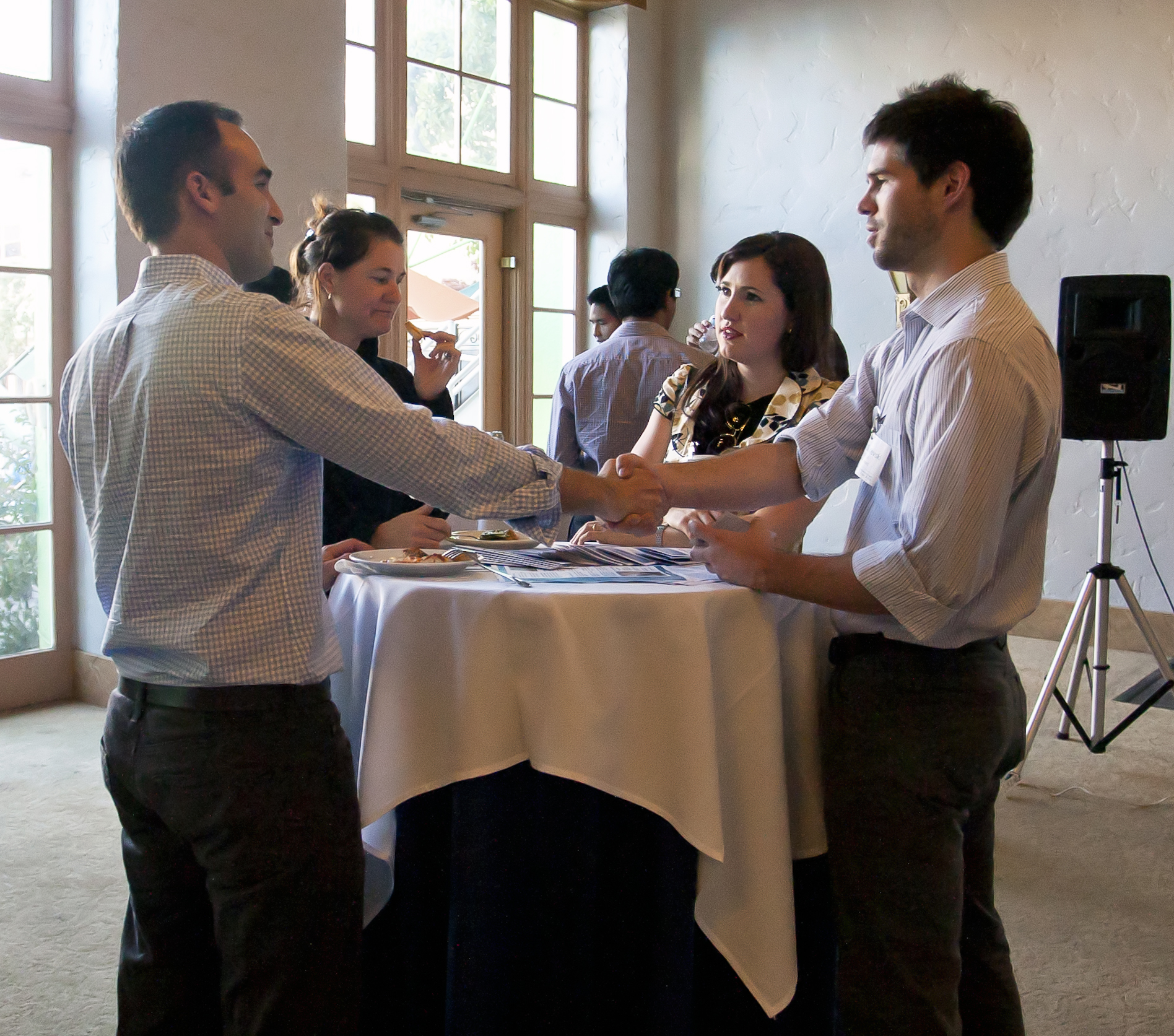Eitan Arom: UCLA needs more hands-on programs

As part of the Startup UCLA accelerator, 11 teams of entrepreneurs traveled to the San Francisco area.
By Eitan Arom
Oct. 14, 2013 12:00 a.m.
For three academic quarters out of the year, Public Affairs 4317 is a normal classroom, part of the California Center for Population Research.
But for the past two summers, it has been transformed into something very different.
From July to September, the room was a forest of ergonomic chairs, Macbooks and whiteboards scrawled over with business strategies.
During that time, it was home to a group of 11 teams of young entrepreneurs readying a product for market as part of the Startup UCLA accelerator. The program provides students and recent alumni with mentor networks, office space and a $5,000 stipend per team.
In other words, the accelerator gives students an opportunity they wouldn’t normally get in a lecture or discussion: the chance to get their hands dirty and learn by sheer trial and error.
Much of the experience of a UCLA student involves passively absorbing information presented by a professor or graduate student. But for many majors and career paths, the more action-oriented model Startup UCLA presents is immensely valuable, and a type of learning experience the school should seek to develop for more students.
For example, take “the pitch.”
It’s the ability to effectively and engagingly communicate an idea or product in a short amount of time, and it’s totally essential for anybody seeking to garner the interest of potential investors, partners and even employers.
For weeks leading up to a showcase event on Sept. 13, the teams refined and reworked their pitches, boiling them down to the essentials that are likely to capture the attention of a venture capitalist.
A month before they pitched to investors, the teams ran their pitches by Barbara Seymour Giordano, a presentation coach and communication consultant.
When UCLA Anderson School of Management student Craig Jones presented his product, a suite of tablet software and other digital tools for education, Giordano counted the number of times he paused or stumbled. When he finished, she read him the count: three “ums,” five “ahs” and one “so.”
As each of the teams presented, she relentlessly quizzed them on the “pain point” of their product: “How are you going to make my life better, faster, cheaper?”
The session with Giordano is precisely the type of skill-building UCLA, a research institution, often fails to imbue upon its students. The theoretical approach to education often in evidence at this school is valuable to a select group of students, particularly those who seek to pursue scientific careers where theory is extremely important.
But UCLA is home to multitudes of future marketers, real estate agents, business consultants, project managers, advertisers and other professionals for whom a theoretical degree is of little help.
Those students don’t pay any less for their degree than future scientists, and they don’t deserve any less from the school in terms of career preparation.
Channels do exist for those students to reap practical benefits from their UCLA education. Some majors allow students to get class credit for internships. Extracurriculars are another way to benefit from the college community. And, as I wrote in January, UCLA does house certain programs where faculty members teach practical skills to the students in their courses.
But in general, something is missing. What Startup UCLA seeks to provide, and what conventional classes often don’t, are intangible assets that raise a student’s market value.
Don’t get me wrong – the mere fact of having a UCLA diploma raises your market value significantly. But by nature of UCLA’s research focus, students often miss out on developing their business acumen, professional networks and entrepreneurial talent.
Indeed, those are boons usually associated with luxurious private schools like USC.
But they make UCLA students more employable and, in the case of the Startup UCLA teams, more likely to succeed as entrepreneurs.
Michael Jirout, who graduated from Anderson in 2010, is a prime example.
One year after graduating from last year’s accelerator, Jirout is working on his travel application, Ship Mate, from an accelerator called Amplify, which is housed in a trendy, artfully decorated building located in an equally trendy neighborhood of Venice. He began working with Amplify shortly after last year’s capstone Startup UCLA event.
The application he started with his brother allows users to create itineraries and book excursions for cruises. When we spoke, it had been downloaded about 600,000 times and boasted more than 10,000 daily users, he said.
In some sense, Jirout’s success as an entrepreneur can be linked to UCLA’s success as an educational institution. And more programs like Startup UCLA could mean more Michael Jirouts.
In short, the skills needed for a complex task like starting a business are very hard to teach in a traditional classroom setting.
“I’ve heard it said you can’t really know how to do something until you do it,” said Michael Stange, a fourth-year aerospace engineering student whose Startup UCLA project was an application that helps users budget their free time.
The campus can take a lesson from Startup UCLA: for many students, learning by doing is the only way.

